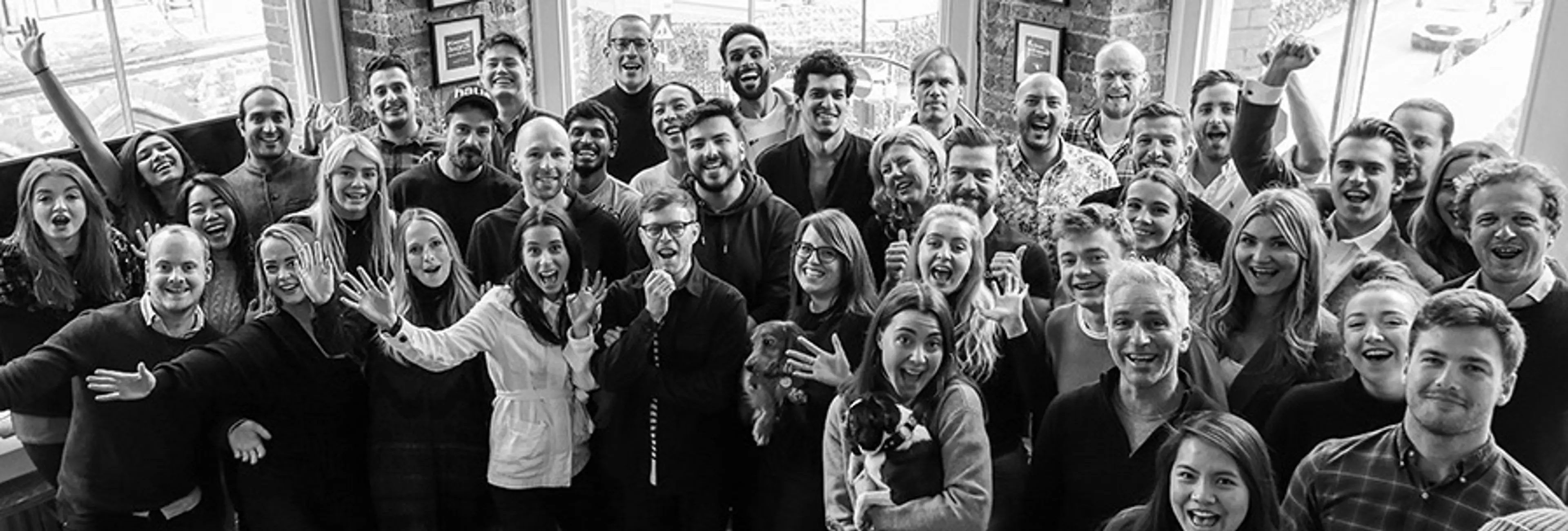
Trends & Insights
1 Apr 2019
3 Min Read
The New Era of Conscious Consumerism
The insatiable rise of the conscious consumer has taken extraordinary effect in the world of retail.
The insatiable rise of the conscious consumer has taken extraordinary effect in the world of retail. The latest edition of Raconteur in which MOF featured stated two in three of us claim to be belief driven buyers. A social activist, often environmentally engaged and purpose-driven, this new player demands tangible action from the brands they invest in.
Remaining perceptive to the impact of one’s purchase decision is not a new concept. But the current pervasiveness of the conscious consumer, to the extent that corporate giants are somewhat shunned should they remain quiet on environmental or social matters, is new.
This cultural supercharging of branding is forcing a rethink across the retail sector, namely how companies are to forge meaningful alliances with their constituents. A loyalty that no longer can be achieved with traditional, above-the-line advertising.
Matter Of Form traces the perfect storm that has facilitated the rise of conscious consumers and the unprecedented impact this has taken on branding with the advent of digital.
The Background
You don’t have to be an expert to know that the world’s resources are being stretched to their very limit. With World Earth Day just around the corner, the current climate change crisis is staring at each and everyone of us in the face.
“It takes 2,700 litres of water to make a single cotton T-shirt - enough for one person to drink for 900 days.”
In 2015, greenhouse gas emissions from textiles production, including damaging practices along the supply and delivery chains, totalled 1.2 billion tonnes of CO2 equivalent, according to a report by the Circular Fibres Initiative. That’s more than the emissions of all international flights and maritime shipping combined.
Conscious consumerism is an attempt, amongst other reasons, to face down the environmental degradation of rampant consumerism.
Further frustrating matters is the perception of ineffectual governments. Against a backdrop of rising populism and deepening inequality, governments are considered by many parochial and partisan. Three months ago, 2 million people signed a petition to sue the French government for not doing enough for the environment. Titled, “The Business of the Century” (L’affaire du siècle), it became the single most signed petition in the history of France in less than 3 weeks.
Only last week, sixteen-year-old Nobel Peace Prize nominee, Greta Thunberg, inspired one of the biggest environmental marches of this century. Over a 24 hour period, one million students across the world skipped school to deplore the actions of ignorant governments.

There is a burning desire for change with a seemingly luke-warm civic response.
Meanwhile, the digital world in which we inhabit, governed by clicks, likes and opinions, has democratised means of communication and encouraged consumers to collectively learn the impact of our purchase decisions and the value of our voices.
Consumers now expect those they associate with to do the same. As growing calls for environmental reform fall on the deaf ears of national governments, conscious consumers are turning to and championing brands as effective force for change with unprecedented consequences for the retail sector.
Many of us have been guilty of categorizing conscious consumerism as a movement driven by millennials. Recent research revealed that a cross-generational cohort of changemakers – not solely millennials– is responsible for reshaping how we live, work and spend.
A study looking at global corporate social responsibility (CSR) found that 9 out of 10 consumers now expect companies to do more than simply turn a profit. 53% of people in a survey conducted by Edelman agree that brands can do more than government to solve social ills — and nearly half say that brands have better ideas.
“9 out of 10 consumers now expect companies to do more than simply turn a profit.”
A New Type Of Brand
No longer can retailers solely rely on the weight of heritage or even traditional craftsmanship for brand equity. A brand’s stance on issues prompts the same purchase intent as its promotion of product features: “a new balancing of the rational and emotional elements of the marketing equation”.
This is a fundamentally new relationship between company and consumer — purchase is premised on a brand’s willingness to live by its values, operate with purpose, and if necessary make the leap into activism.
Take the luxury hospitality market, for example, which is thinking green in more innovative ways than ever before. Hotels such as Six Senses and 1 Hotels now consider the toiletries on offer, in-room dining menu sources, energy consumption and impact right down to the materials used in the building. Fashion conglomerates LVMH and Kering have adopted newly formed sustainability strategies while L’Oreal has its ambitious “zero deforestation” policy in its supply chain.
Part of this new era of authenticity has been a reformation of business culture that starts from within. 1 Hotels, for example, offers staff paid time off to volunteer in environmental advocacy and public education activities. Meaningful internal brand culture has become an essential validation tool with regard to external brand messaging. Raconteur highlighted how 66% of customers said great culture attracts them to buy from certain brands over others, beyond price and quality.
Businesses are therefore looking internally to seek mutually reinforced visions of purpose and culture - something here at Matter Of Form we are particularly passionate about. Employees are unified and inspired by a common sense of purpose and identity. Less a standardised 9-5 working life, brands offer a lifestyle to both employees and customers - a reflection of the convergence of the way we live and work.
A Balancing Act
Though it should be remembered socially conscious branding is a fine line to tread: one that risks exploiting social issues for corporate benefit and blatant hypocrisy. In today’s highly contentious political climate, brands must be authentic. Pepsi learnt the hard way following their disastrous attempt to piggyback the Black Lives Matter movement in 2017.
Though the heralding of sustainability or environmentalism is somewhat less political, brands are now subject to very public, intrusive analysis. In the digital, fast-globalising world we inhabit, consumers can very easily track the supply chain of particular goods and independently determine - and expose - the validity of an ‘eco-conscious brand’.
“In the past, what we’ve seen is a lot of sustainable campaigns that were quite surface level,” says Future Laboratory’s Foresight Editor Ruth Marshall-Johnson. “There was a lot of lip service being paid to this idea of sustainability. Sometimes it didn’t go far enough and it certainly hadn’t been built into the life cycle of a product.”
“What we’re starting to see is more companies looking at ensuring the whole process of making a product and getting it to the consumer is sustainable,” says Marshall-Johnson. “That’s what’s changing now.”
In summary...
In the digital world we inhabit, we are a cause-oriented community more so than ever before. As conscious consumers reclaim their purchasing power, brands are forced to adhere to audience demands.
It is within this context brands are presented with the opportunity to have more meaningful, constructive relationships with their audiences, who in turn demand a collective sense of purpose, beyond mere profit margins.
As climate change reaches crisis point and government action ever more disparate, consumers are taking matters into their own hands. In such a crowded marketplace, it's the brands that lead with integrity, consistently innovate, and best communicate their ethical and environmentally-conscious values to audiences that will shape conversation and cement customer loyalty.
Discuss your project with us
Trends & Insights


